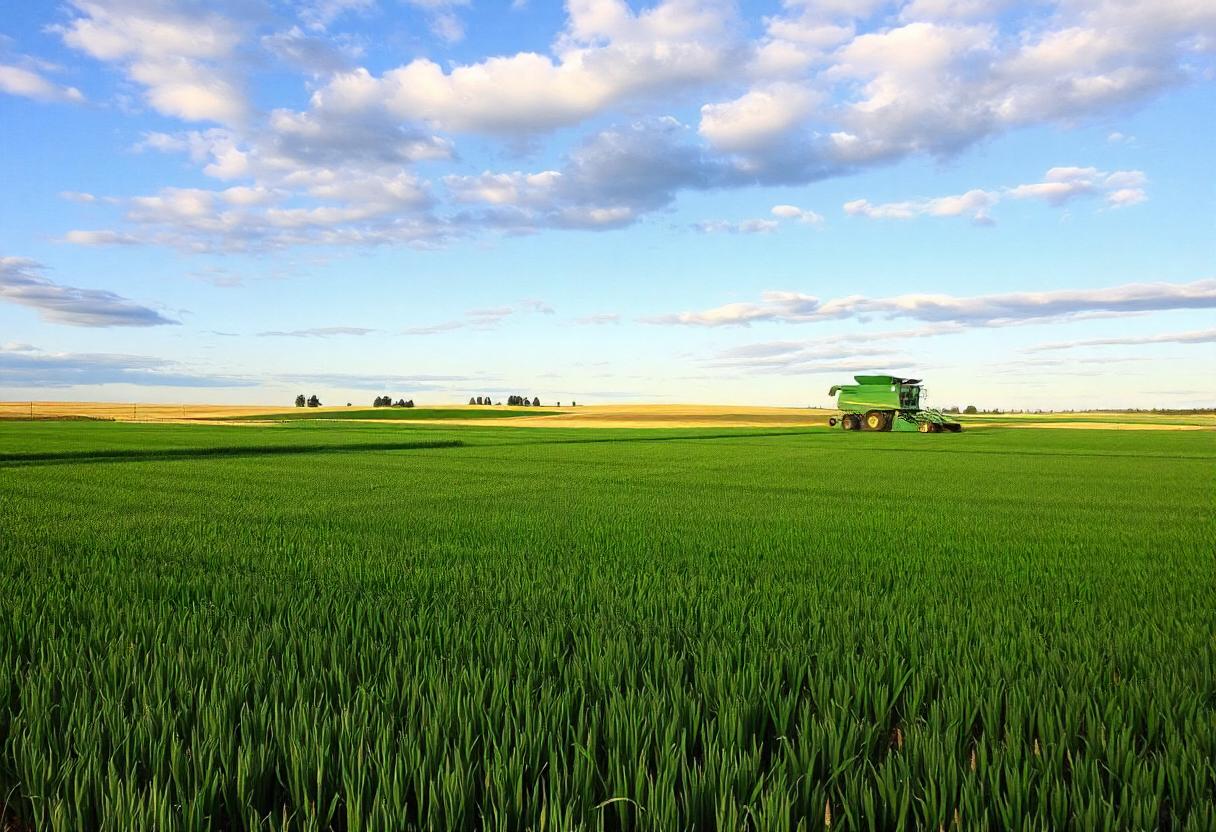
Saskatchewan, one of Canada’s prairie provinces, is a major player in the world of agriculture. Known for its vast open spaces, fertile soil, and favorable climate, the province is a leader in producing various crops and livestock. Here’s an overview of what makes agriculture in Saskatchewan so significant.
The Importance of Agriculture in Saskatchewan
Agriculture is the backbone of Saskatchewan’s economy, contributing billions of dollars annually. The province’s rich agricultural land covers approximately 44% of Canada’s arable farmland, making it the nation’s largest producer of grains, oilseeds, and pulses. Wheat, canola, and lentils are among the most important crops grown here, with Saskatchewan being the world’s leading exporter of these commodities.
Key Crops and Livestock
Saskatchewan farmers are known for producing a wide variety of crops. In addition to wheat, canola, and lentils, they grow barley, oats, flax, and mustard. The province is also a significant producer of peas, chickpeas, and beans. Livestock farming, particularly cattle, is another crucial part of Saskatchewan’s agricultural industry. Ranchers raise cattle for both domestic consumption and export, and the province is also home to bison, sheep, and hog farms.
Technological Advancements in Agriculture
In recent years, Saskatchewan’s agricultural sector has embraced technological innovations. Precision farming, data analytics, and drone technology are helping farmers optimize their operations, reduce waste, and increase productivity. These advancements allow for better crop monitoring, more efficient use of resources, and improved yields, ensuring Saskatchewan remains competitive on the global agricultural stage.
Sustainable Farming Practices
Sustainability is a growing focus in Saskatchewan’s agriculture. Farmers are adopting practices such as crop rotation, reduced tillage, and integrated pest management to protect the environment and maintain soil health. These methods help preserve the land for future generations while enhancing the long-term productivity of Saskatchewan’s farms.
Challenges Facing Saskatchewan Agriculture
Despite its success, Saskatchewan’s agricultural industry faces several challenges. Climate change, fluctuating commodity prices, and trade uncertainties can impact the sector’s profitability. Extreme weather events, such as droughts or floods, pose risks to crops and livestock. Additionally, the rising cost of inputs like fuel, fertilizers, and machinery can strain farmers’ finances.
The Future of Agriculture in Saskatchewan
Looking ahead, Saskatchewan’s agriculture sector is poised for continued growth. Innovations in technology, a focus on sustainability, and global demand for food products ensure that the province will remain a vital player in the global agricultural industry. As Saskatchewan’s farmers adapt to changing conditions, they are well-positioned to continue feeding the world.